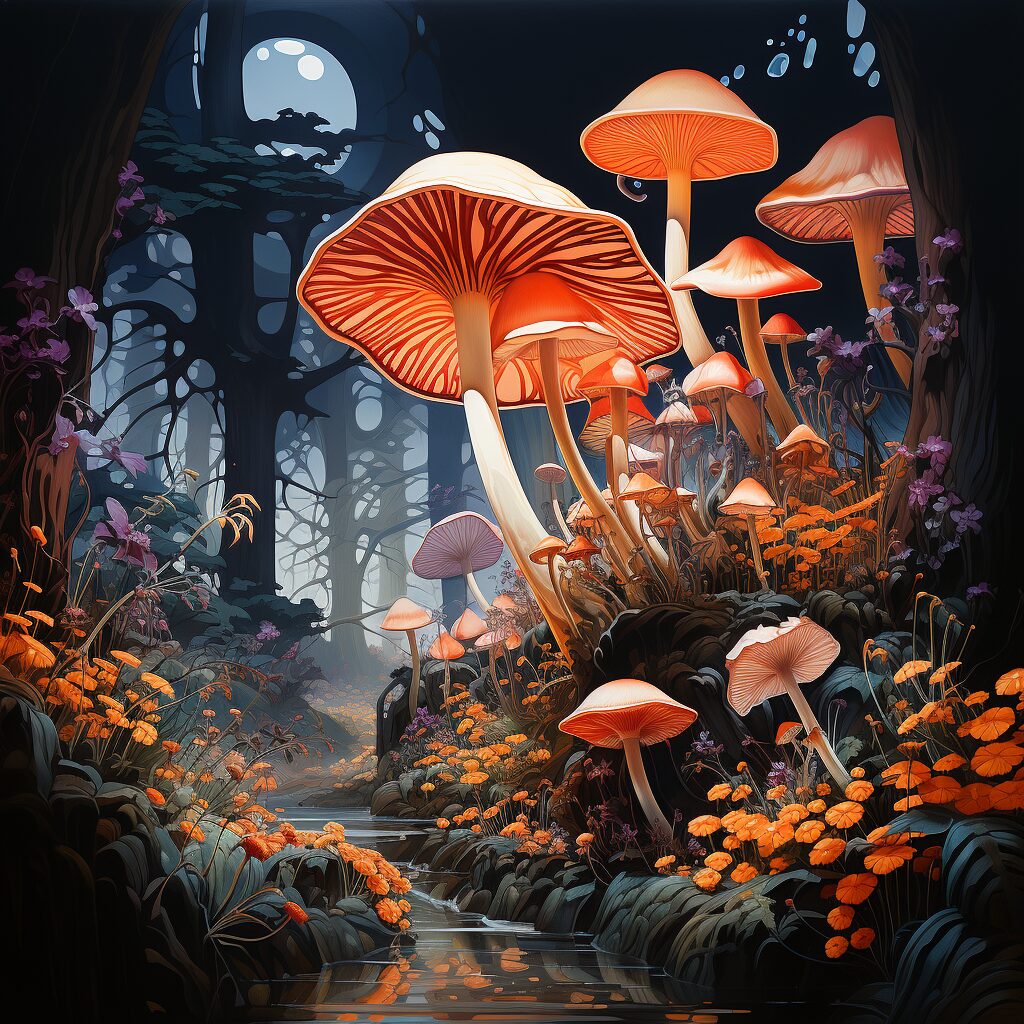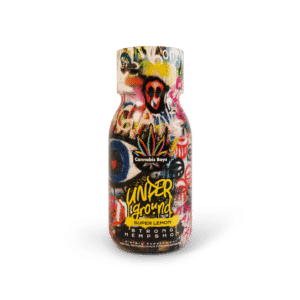We can talk about a renaissance of psychedelics, not only among users - more and more researchers, clinicians, psychologists and other health specialists are interested in the use of psilocybin, LSD, MDMA and other psychoactive substances in the treatment of people with depression, anxiety disorders, addiction, etc. Is the substance found in hundreds of species of psilocybin mushrooms, will revolutionize the approach to mental health?
Psilocybin in the 20th and 21st centuries
Mushrooms containing psilocybin have been consumed by various cultures in many different parts of the world for thousands of years. It is found not only in mushrooms from the Americas, but also in many European and Asian species.
Psilocybin, a classic psychedelic, contains unique psychoactive properties for which it has been used in religious ceremonies and other rituals, as well as as a natural medicine for various ailments of the body and soul.
For more information about the past and present use of psilocybin mushrooms, see the article " Sacred and Magical - Ancient and Present Species of Hallucinogenic Mushrooms Containing Psilocybin and Its Derivatives " published in the international journal Medicina Internacia Revuo.
In the mid-20th century, psilocybin, along with most other classic psychedelics (substances activating serotonin 5HT-2A receptors, among others), was classified as a narcotic substance, which suspended research on its usefulness in medicine. The return of clinical research on psilocybin in the 21st century has brought promising results in the treatment of addictions, depression, anxiety disorders, the consequences of trauma (e.g. PTSD) and mood disorders at the end of life.
A well-known researcher and clinician who popularizes the use of psilocybin (and other psychedelics) in trauma therapy is Professor Gabor Mate. We highly recommend the film about his work, "The Wisdom of Trauma" .
Review of research on psilocybin
Results from psilocybin studies discussed in 2022 review One study found no significant difference between the effects obtained with routinely prescribed SSRIs. Studies conducted in people with advanced stages of cancer have shown that psilocybin may also be beneficial in reducing depression and anxiety that occur as a result of a terminal diagnosis. Therefore, according to some researchers, its use in palliative care seems to make sense.
Psilocybin therapy in the treatment of difficult-to-treat addictions has shown optimistic results. Due to its low toxicity and low risk of abuse , psilocybin has the potential to contribute greatly to addiction medicine. Research into psilocybin addiction has mainly focused on nicotine and alcohol. Several small, open-label studies have shown superiority over traditional therapies.
Several psilocybin administrations and psychotherapy – a new approach to treating depression
Psilocybin-assisted therapy is a new approach to treatment also due to the drug's administration schedule: some researchers recommend several approximately 6-hour sessions with a psychedelic at several-week intervals.
According to this approach, between sessions, patients should participate in individual psychotherapy supporting the integration of experiences gained during sessions with psilocybin. During the sessions themselves, the psychotherapist is also present and supports the patient.
With this treatment regimen, it is possible to significantly improve the mental condition, reduce symptoms and achieve remission of the disorder within a few weeks. The effects can last for many months after taking psilocybin.
How does psilocybin work as an element of psychotherapy?
It is now assumed that psilocybin and other psychoactive substances require more than just taking a capsule and waiting for a beneficial effect. This often includes weeks of therapy to prepare patients for their first dose of psilocybin and further therapy immediately after the session.
In an article describing the goals and challenges facing psychedelic therapists, researchers identify three basic phases of treatment: "preparation for the psychedelic-assisted session, the medical session itself, and the integration of the psychological material that emerges during the preparation and session."
An important aspect is determining the goal of the patient and the therapist, which is to be achieved during the session. It includes motivators, intentions and expectations. The environment in which the session takes place is also important: it is usually a quiet room where the patient lies down, can choose programmed music to listen to, put on a blindfold and talk to the therapist. Developing these ancillary procedures is an essential part of overall treatment.
A psychedelic experience is an experience that expands consciousness, allows you to experience emotions related to a certain aspect of reality, and look at it in a different way than before. An important experience described by both researchers, therapists and people using psychedelics is the sense of unity with the surrounding world, nature and people. It may have a beneficial impact on a person's further relationships and social functioning, provide a sense of meaning in life and motivation to continue acting.
Psilocybin microdosing in treatment-resistant depression
trials emerging to scientifically test the effectiveness of administering small (non-psychedelic) doses of psilocybin to depressed patients who do not respond to antidepressant treatment.
Microdosing psilocybin and other psychoactive substances is a well-known practice among psychedelic users, but it is difficult to find controlled scientific studies that would clearly confirm its effectiveness. There is data based on self-observation of participants who reported their well-being to researchers via the app, as well as other types of questionnaire studies.
Most researchers point out the need to conduct clinical trials on the antidepressant effects of small doses of psilocybin and the benefits of their use in situations other than depression. We hope that the ongoing study mentioned above will provide new information on this topic.
Synthetic psilocybin in the treatment of depression – new clinical trials
In November 2023, the biopharmaceutical company revealed the results of a clinical trial that demonstrates the potential of psychedelics in the context of mental health. The official statement states that the aim of the research is to "revolutionize mental health care by developing an innovative next-generation psychedelic treatment."
The research used a psilocybin analogue synthesized by Cybin. The study involved people experiencing major depressive disorder (MDD ) and healthy volunteers.
People with depression were divided into 2 groups and received 2 doses during the study (placebo/psilocybin, psilocybin/psilocybin), the effect was assessed 3 weeks after each dose. The subjects could continue taking antidepressants. The study report said it showed "rapid, robust, and statistically significant reductions in depressive symptoms three weeks after a single dose compared to placebo."
The great interest in psychedelics in the scientific community around the world and the development of organizations such as the Polish Psychedelic Society can be seen as a step towards changing the approach to mental health. In Poland, the use of psilocybin is illegal, but perhaps this global trend will lead to the widespread legalization of the use of this substance, initially probably only for medical purposes.








